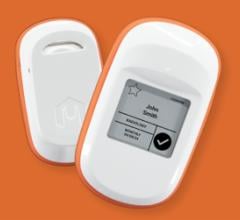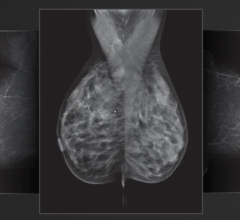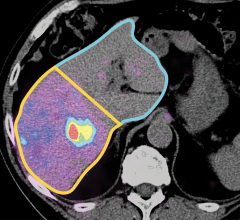
September 12, 2019 – GE Healthcare announced the U.S. Food and Drug Administration’s (FDA) 510(k) clearance of Critical Care Suite, a collection of artificial intelligence (AI) algorithms embedded on a mobile X-ray device. Built in collaboration with UC San Francisco (UCSF) using GE Healthcare’s Edison platform, the AI algorithms help to reduce the turn-around time it can take for radiologists to review a suspected pneumothorax, a type of collapsed lung.
A prioritized “STAT” X-ray can sit waiting for up to eight hours for a radiologist’s review[1]. However, when a patient is scanned on a device with Critical Care Suite, the system automatically analyzes the images by simultaneously searching for a pneumothorax. If a pneumothorax is suspected, an alert — along with the original chest X-ray — is sent directly to the radiologist for review via picture archiving and communication systems (PACS). The technologist also receives a subsequent on-device notification[2] to give awareness of the prioritized cases. Quality-focused AI algorithms simultaneously analyze and flag protocol and field-of-view errors as well as auto-rotate the images on-device. Critical Care Suite and the quality algorithms were developed using GE Healthcare’s Edison platform – which helps deploy AI algorithms quickly and securely – and deployed on the company’s Optima XR240amx system.
“Clinicians are always looking for clinically proven methods to increase outcomes and improve the patient experience,” said Rachael Callcut, M.D., associate professor of surgery at UCSF, a surgeon at UCSF Health and director of data science for the Center for Digital Health Innovation, who partnered in the development of Critical Care Suite. “When a patient X-ray is taken, the minutes and hours it takes to process and interpret the image can impact the outcome in either direction. AI gives us an opportunity to speed up diagnosis and change the way we care for patients, which could ultimately save lives and improve outcomes.”
Additionally, embedding Critical Care Suite on-device offers several benefits to radiologists and technologists. For critical findings, GE Healthcare’s algorithms are a fast and reliable way to ensure AI results are generated within seconds of image acquisition, without any dependency on connectivity or transfer speeds to produce the AI results. These results are then sent to the radiologist at the same time the device sends the original diagnostic image, ensuring no additional processing delay. Also, automatically running quality checks on-device integrates them into the technologist’s standard workflow and enables technologist actions – such as rejections or reprocessing – to occur at the patient’s bedside and before the images are sent to PACS.
GE Healthcare’s Edison offering comprises applications and smart devices built using the Edison platform. The platform uses an extensive catalog of healthcare-specific developer services to enable both GE developers and select strategic partners to design, develop, manage, secure and distribute advanced applications, services and AI algorithms quickly. Edison integrates and assimilates data from multiple sources, applying analytics and AI to not only transform data, but provide actionable insights that can be deployed on medical devices, via the cloud or at the edge of the device.
Additional partners in the development of Critical Care Suite include St. Luke’s University Health Network, Humber River Hospital and CARING - Mahajan Imaging – India.
For more information: www.gehealthcare.com
References
1. Rachh P., Levey A.O., Lemmon A., et al. “Reducing STAT Portable Chest Radiograph Turnaround Times: A Pilot Study.” Current Problems in Diagnostic Radiology, published online June 5, 2017. https://doi.org/10.1067/j.cpradiol.2017.05.012
2. The technologist on-device notification is generated after a delay, post exam closure, and it does not provide any diagnostic information, nor is it intended to inform any clinical decision, prioritization, or action.


 April 12, 2024
April 12, 2024 








